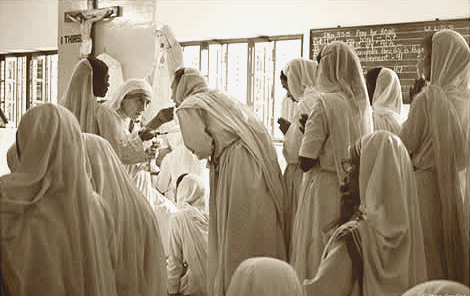“I guess a small-town mayor is sort of like a community organizer, except that you have actual responsibilities,” said Sarah Palin during her acceptance speech on Wednesday.
One could call Sarah Palin’s remarks a defensive reaction to those who were dismissive about her own experience in Alaska. The crowds at the Republican National Convention laughed and cheered in response to her sarcastic assault on Barack Obama’s early years as a community organizer.
One would hope, however, that a leader seeks to strive beyond the divisiveness and negative campaigning that Palin embraced during her acceptance speech. It was indeed an effective speech for the Republican Campaign, although it challenged the togetherness and the sense of civic awareness that many consider an inspiring aspect of Obama’s rhetoric.
“Maybe this is the first problem on the resume,” Former New York Mayor Rudi Giuliani suggested, “[Obama] worked as a community organizer.” Giuliani continued the assault on community organizing, demeaning Obama’s service in the South Side of Chicago, and claiming not to know what community organizers even do.
It must be a joke to those who are so out of touch, or so elitist, that they have never worked in a grassroots environment, person to person, to empower the impoverished, the disenfranchised, the discriminated, and the casualties of negligent governance. It smacks of hypocrisy that of all people, our civil servants, our so-called leaders who claim their dedication to the common good, speak of community organizing in such demeaning terms.

It was Mother Teresa who once said, “Do not wait for leaders; do it alone, person to person.” Here I now live, in Mother Teresa’s home country of Macedonia, fully dedicating myself to public service and community organizing. I have never felt such a sense of responsibility as I do these days, knowing that I can reach out and improve the lives of the disadvantaged in a way most politicians cannot. The responsibility to reach out and help strangers in need is not necessarily an innate characteristic of human nature. More often, it is a responsibility born in individuals who identify with those whose lives they are seeking to improve.
Obama rightfully pointed out that his work as a civil rights lawyer, a professor of constitutional law, and his years in the State Legislature and the U.S. Senate, were overlooked by his first job out of college as community organizer. Obama says his experience with community organizing is indeed relative for the presidency, responding to Palin’s comments that his work in the community is key in understanding “where I’m coming from, who I believe in, what I’m fighting for, and why I’m in this race.” Obama went on to ask why one would claim that working to improve “the lives of those folks that are struggling each and every day…is somehow not relevant to the presidency?”
It is not easy to come face to face with poverty and tarnished dreams, and set out to improve the conditions of the less fortunate. New York community organizer John Raskin, in response to Palin and Giuliani’s comments on community organizing, noted to Associated Press on the topic that “it’s adding insult to injury. First, to create an economy that leaves out so many people and then to insult people who are trying to help.” It belittles the hard work of those out in the field every day, working to extend health care to those without insurance, to provide and protect affordable housing, to offer legal services to the discriminated, to lower the rates of teenage pregnancies, pollution, or crime, and to empower the disenfranchised.
As I embark on my career of public service, I value my experience as a community organizer because I now know the capacity of one individual to improve society, and the power of one community to change the world. Community organizers like Martin Luther King, Jr. were on to something when they set out to challenge the status quo one individual at a time. Barack Obama claims to have been inspired by the Civil Rights Movement, and it is community organizers like Mother Teresa and Martin Luther King, Jr., who sparked movements that offer us the greatest hope for a better future.



